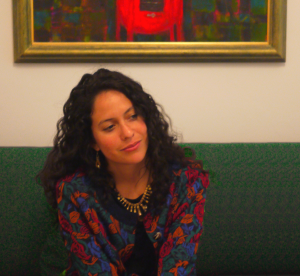This week read all about LSE Alum and current LSE postdoc fellow Natalia’s experience and journey as student, teacher and researcher, and her plans for the future. We hope it inspires you!
Tell us about your career path to date.
After I finished my MSc in the Anthropology of Learning and Cognition at LSE, I started a PhD in Social Anthropology (also at LSE) which led me to conduct long-term fieldwork in the Ecuadorian Amazon, exploring a range of issues such as the tension between egalitarianism and political centralisation, changing attitudes towards social conflict and work, and the moral ambiguities that surround the development of vernacular statecraft among Shuar indigenous people. Shortly after completing my PhD, I became an LSE fellow. Then, from September 2017, I began to work as a research officer in the Department of Anthropology as part of an ERC-funded Project which seeks to contribute an Amazonian perspective to the anthropological study of justice.
Has your career path developed as you planned/hoped?
More or less but for the better! When I arrived in London to do my MSc, I did not anticipate staying at the LSE for as long as I have so far… My expectations have definitely been met: I was able to get initiated into the long-term ethnographic tradition thanks to the mentorship and generous funding I received from the Department of Anthropology. In my opinion, the best teachers are those capable of bringing to life their research experience in the classroom. At LSE, I have been able to explore the cross-fertilisation of teaching and research thanks to the experience I acquired as a Graduate Teaching Assistant and through my work as a fellow. The fellowship also enabled me to develop an inclusive and stimulating research-led teaching style adapted to different levels of expertise in my discipline (undergraduate, master, PhD levels).
What’s your current role?
I am a research postdoctoral fellow at LSE. My research position is part of a collaboratively ERC-funded project entitled ‘Justice, Morality, and the State’. The team’s overall objective is to investigate the social, cultural and cognitive-emotional bases of justice, with a focus on the indigenous peoples of Western Amazonia. My current post-doc builds on the findings and theoretical insights I developed in my earlier work on the process of village formation in the region and contributes to the development of an anthropology of justice which will reveal something of the power and sophistication of Amazonian moral and political philosophy, while bringing these into constructive dialogue with the scholarship on justice in Euro-America and elsewhere. Through an array of ethnographic and experimental methods, I will study how moral judgements, local practices of responsibility attribution, and forms of cooperation transform in relation to the increase of scale and formalisation of social relations, brought about by an increasing presence of the state in everyday life.
Why did you choose this job?
Beyond the fun of doing more fieldwork in the Amazon, I was attracted to the collaborative dimension of the project. As is the case for many PhD students, I found that the writing-up process was perhaps the most disorienting and solitary of my research journey. I recovered faith along that journey thanks to those gratifying moments in which I felt I was ‘thinking together’ with others during the seminars when my peers and mentors offered constructive feedback on each other’s ideas. In fact, while much of what anthropologists learn about the world relies on ongoing interaction and sharing with others, their style of work and presentation of findings tends to emphasise individual effort and creativity. I thus knew that for my next research I wanted to experience ‘collective thinking’ as part of the style of work and the justice project promised a solid collaborative platform. This is exactly what we do: our team (a principal investigator, an advisor, two post-docs and a PhD student) meets every couple of weeks to ‘think together’ and soon we will be doing fieldwork together for a short period of time! We have a common agenda and benefit from each other’ specific areas of specialisation but everyone has plenty of room to cultivate their unique talents and ideas. I also feel the stakes are higher this time because what we can produce in the process of nurturing each other’s ideas is much more ambitious and exciting than what I could think up alone.
What do you like most about your job?
As above … but also the fact that we’re trying to develop an interdisciplinary approach to the study of justice in which ethnography might usefully enhance other research methods (from experimental philosophy, developmental psychology, the history of law, political science, etc.), and vice versa. We are also building on each other’s findings to pursue a systematic comparison about the ideological and institutional developments that are taking place in the sphere of justice in contemporary Western Amazonia.
What are your plans for the future?
By the time I finish my research post-doc (2 years from now), I’ll be missing teaching more than ever, so I’ll be looking for opportunities where I can combine teaching and research in the most synergic of ways. I would also like to move on to study similar phenomena in other parts of the world and possibly scale up some of my reflections about social change and institutionalisation through comparison with other regions of the world.
Thinking back, why did you choose your degree subject and why did you choose LSE?
Anthropology is perhaps the only discipline whose theoretical contributions to the social sciences thrive on cultivating intense and ongoing relationships with people around the world. I became an anthropologist because I am fascinated by the way humans construct institutions which in turn shape the way they experience the world and no other discipline is as reliant on participating in the nitty-gritty details of humans’ existences as is anthropology. I first came to the LSE because it had on offer a fantastic programme on the cross-cultural study of sociocultural learning (MSc in the Anthropology of Learning and Cognition). Also, as an undergraduate student of anthropology, I had the intuition that I could only really become an anthropologist the day I undertook fieldwork myself and the Department of Anthropology combines a strong tradition of ethnographic research and world-leading theory-building in the discipline.
How has your time at LSE helped you so far in your career?
I couldn’t have hoped for a more nurturing and supportive institution for my academic and professional development. At LSE I have been a student, a teacher and a researcher, not to mention that I have also worked as a Subwarden, Moodle editor, GTA and LSE Fellow! LSE is not only a stimulating and forward-looking place in which to do research, it has also supported my learning trajectory through a variety of excellent teams: I’m particularly grateful to the mentorship offered by my supervisors and other staff members in the Department of Anthropology, the Teaching and Learning Centre (particularly the PGCerthE team), and the Wellbeing Centre.





